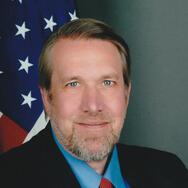Students – horrified and trying to make sense of what was happening – sought clarity and comfort from their teachers, who just happened to be experts on the issues that would come to define the next two decades of U.S. domestic and foreign policy.
“When something that shocking happens, our natural inclination is to make sense of what’s going on together, right now,” said Zegart, who is a leading scholar on national security and the Central Intelligence Agency and is now a senior scholar at the Freeman Spogli Institute for International Studies (FSI) and the Morris Arnold and Nona Jean Cox Senior Fellow at the Hoover Institution.
Students wanted to know more about the terms and names they were hearing for the first time that day, like jihadism and the Taliban. Over the months that followed came more complex challenges to explain: the global war on terror, torture, rendition, Guantanamo Bay, the wars in Afghanistan and Iraq.
This is the world that today’s students have inherited. Even the current generation’s media, as Zegart’s research has shown, has become increasingly saturated with a proliferation of “spytainment”: movies and TV shows depicting, often inaccurately, the clandestine world of intelligence and counterterrorism operations.
Like Rice, Crenshaw has also found herself having to explain that none of this was normal before 9/11.
“I have to go back and say, ‘All this wasn’t always here before 9/11.’ I have to trace the trajectory of policy changes,” said Crenshaw, a senior fellow at FSI and the Center for International Security and Cooperation.
Shifts in Emotion
In the first decade after the attacks, Zegart said her students were incredibly emotional about 9/11 and its aftermath, including the expansion of U.S. conflict abroad. A few years after the wars in Afghanistan and Iraq broke out, Zegart remembers one of her students, a recently returned veteran, telling her that he was taking her intelligence class because he wanted to learn more about why he had gone to Iraq, and what his friend who had deployed with him had died fighting for.
“It was a really raw, personal experience for students studying foreign policy in the first decade after 9/11 because they were living with war and uncertainty,” said Zegart. She had to push them be more analytical and objective in their class discussions of what a post 9/11 world entailed.
As the years progressed, though, 9/11 increasingly became less personal for the next generation of students. Perceptions began to shift. So much so that Zegart now finds herself in the opposite predicament: How to insert those feelings back in.
“Because they didn’t live through it, they look at it distantly and dispassionately,” Zegart said. “The challenge is, how do you help students better understand the context in which decisions were made and the raw emotion that unavoidably affects how we perceive threats and how we deal with policy responses.”
Teaching the Emotions of the Day
To evoke a visceral response to 9/11, Zegart shows a 4-minute montage of news clips. Students get a sense of how the day unfolded, from the breaking reports of the first tower being struck to a reporter’s on-air reaction as the second plane crashes live into the remaining tower. There are also scenes of people fleeing lower Manhattan amid dust, smoke and debris.
“You just cannot convey that day in a normal lecture or a book,” Zegart said. The video is effective; her students are often left with a sense of the sadness, horror and anguish that defined 9/11.















![Marietje Schaake [second from the left] during a press conference on universal human rights alongside her colleauges from the European Parliament.](https://fsi9-prod.s3.us-west-1.amazonaws.com/s3fs-public/styles/680x378/public/2023-04/policy_impact_marietje_schaake_human_rights_alberto_novi_flikr_hero.png?itok=IrYo_nO9)
![Marietje Schaake [left] moderates a panel at the 2023 Summit for Democracy with Neal Mohan, CEO of YouTube; John Scott-Railton, Senior Researcher at Citizen Lab; Avril Haines, U.S. Director of National Intelligence; and Alejandro N. Mayorkas, U.S. Secretary of Homeland Security.](https://fsi9-prod.s3.us-west-1.amazonaws.com/s3fs-public/styles/680x378/public/2023-04/policy_impact_marietje_schaake_democracy_summit_2_hero.png?itok=UXXkriBe)





























